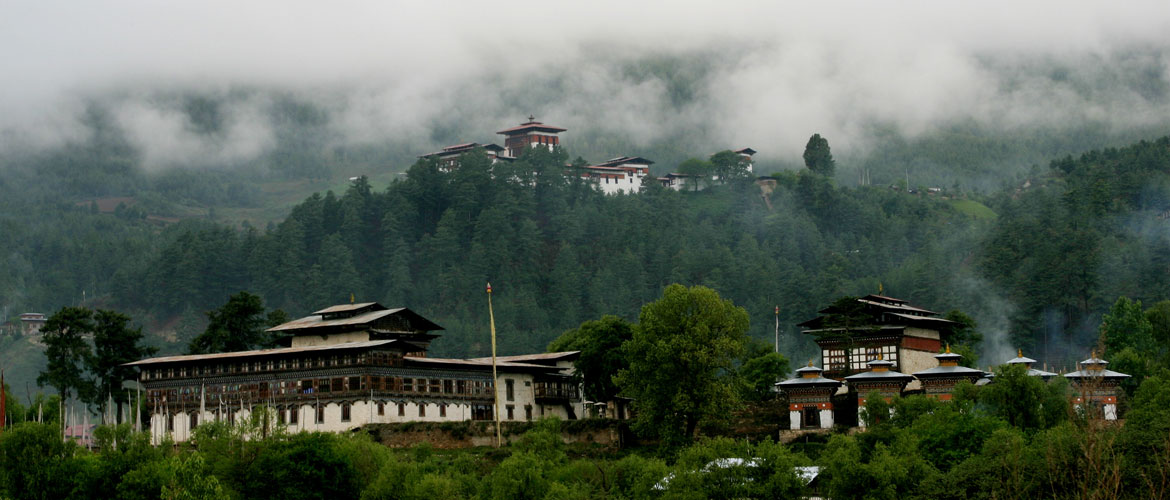
This is a fairly easy three-day trek that takes you through beautiful valleys and along clear, trout-filled rivers. Bumthang is often known as the ‘cultural heartland’ of Bhutan and there are plenty of ancient temples to visit during the hike.
In addition to the numerous lhakhangs there are also a number of small villages where you can stop and rest. The only segment of the trek that may prove challenging is a 500m ascent to Pelhe La pass. The best time to embark on this trek is in spring or autumn.
Day 1: Toktu Zampa – Ngang Lhakhang (Distance 12 km, 4-5 hours, 170 m ascent, camp altitude 2,800 m)
The route follows the Chamkhar Chu, a river known for trout and stops for lunch at Thangbi Lhakhang. From here the trek enters the Ngang Yul (Land of the Swan) at the centre of which lies the Ngang Lhakhang (Swan Temple). The valley was once populated by swans, and hence the name Ngang Yul.
Day 2: Ngang Lhakhang – Tahung (Distance 16 km, 6 hours, 750 m ascent, 670 m descent, camp altitude 2,720 m)
You’ll begin the day by crossing verdant meadows and with a beautiful view of the valley below. Then you climb gradually to Phephe La (3,360m), the highest point of the trek route. The trail passes through beautiful forested areas where many stops can be made to enjoy the natural beauty of your surroundings. The path leads you downhill into a broad valley. Amongst several possible camping sites the most likely one is uphill behind the village of Tahung.
Day 3: Tahung – Mesithang (Distance 16 km, 4-5 hours, 230 m descent)
The trail follows the Tang Chu, another trout-filled river. On the bank of the river is the Tang Rimpoche’s Lhakhang. The trek will pass the Mebar Tsho (Burning Lake) and lead you to Tang Ogyencholing. Ogyencholing Palace houses the only privately owned museum in Bhutan and has all manner of traditional artifacts on display. From here you will soon reach the road head.